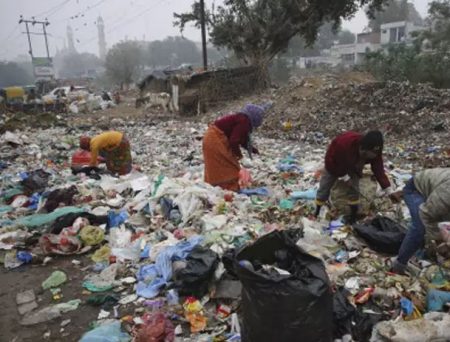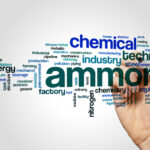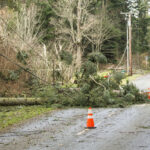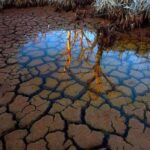February 14, 2019 – A happy Valentine’s day to you all. Make sure that the chocolates you receive come in recyclable boxes and that if there is plastic in the packaging contents that it too can be recycled. Plastic waste in the environment has become an easy target for companies to focus on, far easier than trying to mitigate climate change. We should be grateful, at least, that 30 companies who produce plastic and consumer goods that incorporate plastic, recognize the need to do something and are putting money into a solution.
The $1 billion USD investment is just the start. Over the next five years the Alliance to End Plastic Waste (AEPW), officially launched on January 16, 2019, intends to spend $1.5 billion on solutions that promote the reuse of plastic and the removal of it from the environment.
The problem, of course, is that we are hooked on plastic and have been since it became part of the 20th and 21st-century lifestyle. When I look on my desk through my plastic lensed glasses I see ballpoint pens encased in plastic, a plastic covered card file box, a plastic-sheathed USB stick, and more. The keys I am typing on are plastic as is the mouse I use. The front housing of my computer is plastic and I am certain there is far more plastic within the components of my desktop system.
Back in December of last year, I posted to this blog site an article featuring a “60 Minutes” profile on the problem with plastic pollution in which I stated an awful statistic, that 90.5% of all the plastic we create is never recycled.
One of the co-founders of AEPW is BASF, the chemical company responsible for some of that 90.5%. Its Chief Technology Officer, Dr. Martin Brudermüller, in describing the why of the initiative stated, “Plastics are efficient materials that can save resources and enable health, safety as well as convenience benefits for society. These benefits could be contradicted if plastics and their waste are neither used nor disposed nor recycled in a responsible manner.”
AEPW intends to focus on four key initiatives:
- Infrastructure development – for the management of waste plastic including increased recycling.
- Innovation – to work with new technological solutions to make recycling and recovering plastics easier and to create value from post-use plastics.
- Educational programs – to inform government, business, and the public on actions that can be taken to meet the alliance’s objectives.
- Environmental cleanup – to focus on those areas where there are high concentrations of plastic waste in the environment including the conduits of waste, such as rivers, sewers, and other sources of land-based waste that eventually gets into the ocean.
The 30 members in addition to BASF include Berry Global, Braskem, Chevron Phillips Chemical Company LLC, Clariant, Covestro, CP Group, Dow, DSM, ExxonMobil, Formosa Plastics Corporation USA, Henkel, LyondellBasell, Mitsubishi Chemical Holdings, Mitsui Chemicals, NOVA Chemicals, OxyChem, PolyOne, Procter & Gamble, Reliance Industries, SABIC, Sasol, Shell, Suez, SCG Chemicals, Sumitomo Chemical, Total, Veolia, and Versalis (Eni).
On the Alliance website, David Taylor, appointed Chairman of the AEPW, has invited all companies, “big and small and from all regions and sectors, to join us,” citing that plastic waste “does not belong in our oceans or anywhere in the environment.”
AEPW is providing financial contributions to The Incubator Network, launched in 2018. The Network, supported by the U.S. State Department, Circulate Capital, and Second Muse, is focused on helping governments and companies stop plastic waste getting into the ocean and environment. The Network has initially established a multimillion-dollar investment to build waste management and recycling programs in the five countries of South and Southeast Asia, that represent about 45% of the volume of all plastic making its way into our oceans. They are Indonesia, India, Vietnam, Thailand, and The Philippines.
In Surabaya, a city of three million in Indonesia, which produces close to 1,600 tons of waste daily, a test case of the Network has been launched. Much of the city’s plastic ends up in landfill sites where scavengers pick through it and collect it to sell to factories. This informal workforce is largely made up of women of low social standing. Their efforts harvest about 11% of the total plastic that gets recycled.
In the test case called the Surabaya Ocean Plastic Prevention Accelerator, the goal is to help these women to be recognized f0rmally as part of the plastic waste recovery and recycling solutions in the city, and to ensure that they are protected from harassment and abuse by government, police, and the public, to end the social stigma associated with what they do to earn enough upon which to live.
















